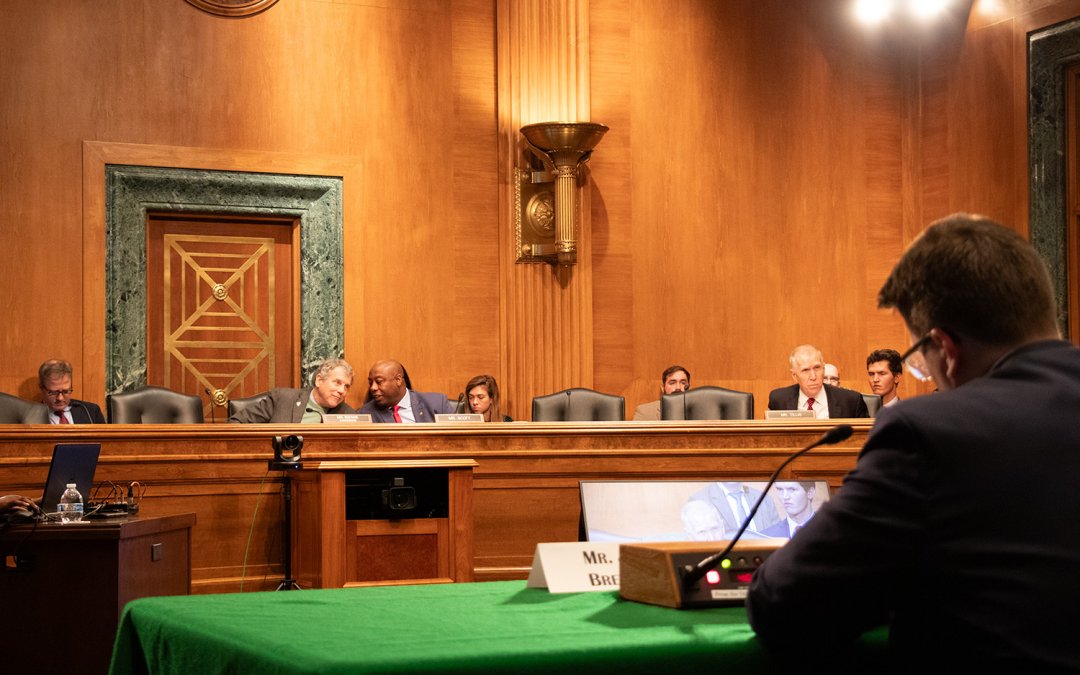WASHINGTON – Lawmakers on the Senate banking committee on Thursday sought answers on how to spot and shut down financial scams and fraud, especially as new platforms to send money proliferate.
Committee Chair Sherrod Brown (D-Ohio) underscored the distressing surge in check fraud that prompted a public alert in 2022 and wire fraud, which has led to a staggering loss of at least $270 million in 2023 for consumers.
“Banks, payment apps, and financial services must take responsibility, step up their efforts, and earn back the trust of their consumers,” Brown said. “A collective effort is needed to make our financial system safer, combating fraud and scams across various financial platforms, including cryptocurrency.”
Brown also noted that scammers are exploiting vulnerabilities in newer platforms such as PayPal, Venmo, Cash App and Zelle.
“When you send money through an app or send a check in the mail, people are supposed to trust that financial companies are protecting their money and will help them if something goes wrong,” Brown said. “That’s not what we see.”
Carla Sanchez-Adams, senior attorney from the National Consumer Law Center, a nonprofit, told lawmakers that low-income and elderly communities are dealing with payment fraud at a higher rate. She explained how these communities, who are already struggling, are the ones who can least afford to lose money due to payment fraud and errors.
Historically, low-income and elderly communities are more likely to be victims of financial fraud, with one in 18 older adults experiencing financial fraud or scams.
Another study from the National Center for Biotechnology Information found that nearly 10% of participants of an average age of 82 said they had experienced financial fraud. Of these, the majority were Black elderly with fewer years of education, lower income and lower literacy.
The committee’s ranking member, Sen. Tim Scott (R-S.C.), called for financial institutions to intensify their efforts to combat fraud. He also suggested that regulatory changes are needed to address scams and fraud in the banking system.
In 2022, Americans lost nearly $9 billion to fraud; around 20% of those fraud losses totaled more than $5,000.
“For many families, falling victim to scams equates to wiping out a lifetime of savings, impacting not only their account balances but also instilling a fear that their transactions are no longer secure,” Scott said.
While lawmakers and witnesses agree that education is a powerful tool against financial crimes, they also concurred that fraud can happen to anyone, and financial institutions should play a part in protecting and serving consumers.
“I don’t think anyone is immune to consumer fraud,” said Sen. Jon Tester (D-Mont.).

